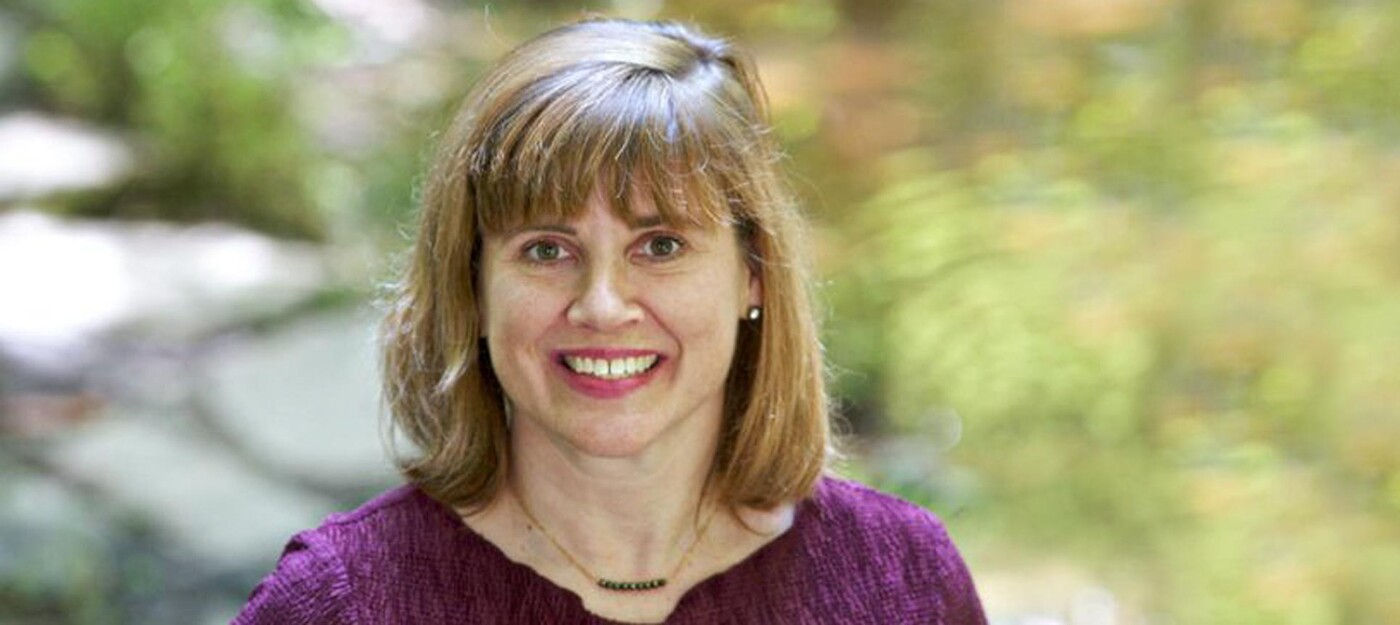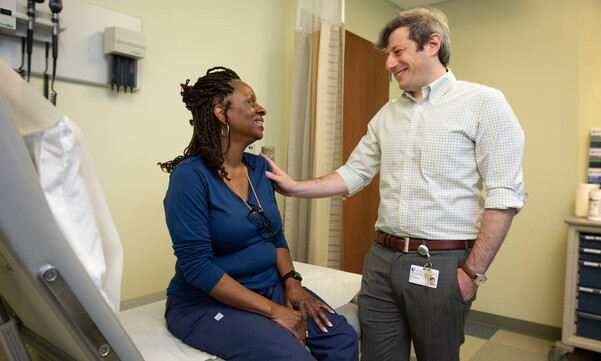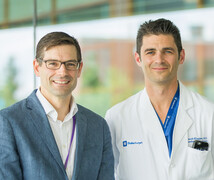Katie Courtland of Durham lived with heartburn, acid reflux, and other typical symptoms of gastroesophageal reflux disease for years. When her condition became so severe that leaving the house made her nervous, she knew that she needed help. Luckily, that help wasn’t far away. Courtland received the expert, tailored treatment she needed at Duke Health’s esophageal clinic in Durham. Now she’s back to enjoying life again.
Worsening Symptoms
Many people successfully manage gastroesophageal reflux disease (GERD) with medications and dietary restrictions. This was true for Courtland for more than a decade, but over time her condition worsened. Eventually the 51-year-old suffered from daily nausea and vomiting. “Every time I left the house, even just to walk my dog, I was worried about being sick,” Courtland said.
Multiple Specialists at One Esophageal Clinic Provide Collaborative Care
In August 2020, Courtland was referred to a new clinic at Duke where gastroenterologists and thoracic surgeons provide specialized care for people with esophageal disorders. Patients see an esophageal expert and a thoracic surgeon during the same visit. Rahul A. Shimpi, MD, a gastroenterologist at Duke Health explained the advantages of this approach. “We are able to evaluate, discuss, and come up with a treatment plan together immediately instead of the patient having to wait months between clinic visits and referrals.” Duke thoracic surgeon, Matthew Hartwig, MD, agreed. “Being able to see both specialists shortens the time to treatment and increases the effectiveness of the therapies we recommend.”
A Tailored Approach to GERD Surgery for a Complicated Condition
After a thorough evaluation, Drs. Shimpi and Hartwig soon realized Courtland’s condition was complicated. In addition to common symptoms of GERD, she had a hiatal hernia, which occurs when the upper part of the stomach pushes into the chest cavity through a hole in the diaphragm, and esophageal dysmotility, a condition that prevents food and liquid from moving down the esophagus to the stomach as they should.
The doctors recommended surgery to correct the hernia. Courtland also needed a complex procedure called fundoplication. During this operation, the surgeon wraps part or all of the stomach around the lower esophagus to strengthen the muscle and stop the acid reflux. “We tailored the fundoplication to her specific condition,” said Dr. Hartwig. Their approach took into account her multiple health conditions and would lower Courtland’s risks for swallowing problems after surgery.
After years of suffering, Courtland felt relieved after her meeting with her doctors. “I was shocked to get so much one-on-one time with a GI doctor and then with a thoracic surgeon. I walked out feeling like a huge weight had been lifted from my shoulders. I don't know if you can be happy about a diagnosis and a plan for surgery, but I had so much confidence in the diagnosis and their plans to try to solve things,” she said.
Feeling Like Herself Again
According to Dr. Hartwig, the surgery went very smoothly. After a night in the hospital, Courtland returned home to recover. She now enjoys worry-free walks with her dog and even coffee and chocolate -- luxuries that were off-limits before surgery. “I’m a thousand times better. It was a really positive experience, and I feel so fortunate.”





